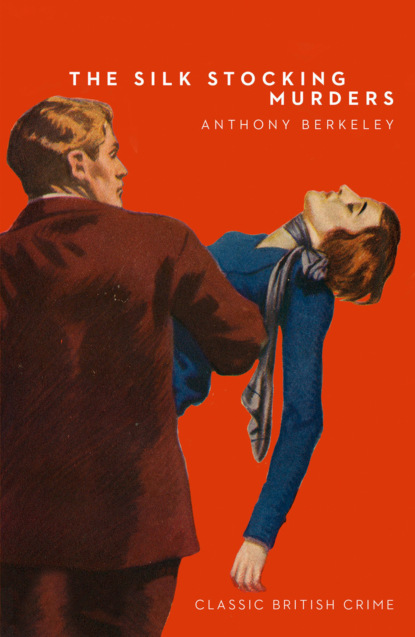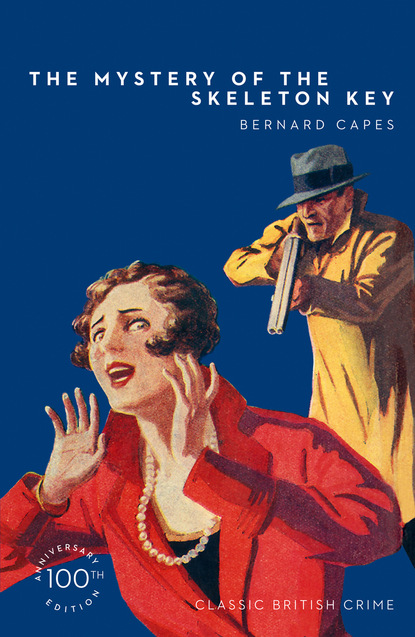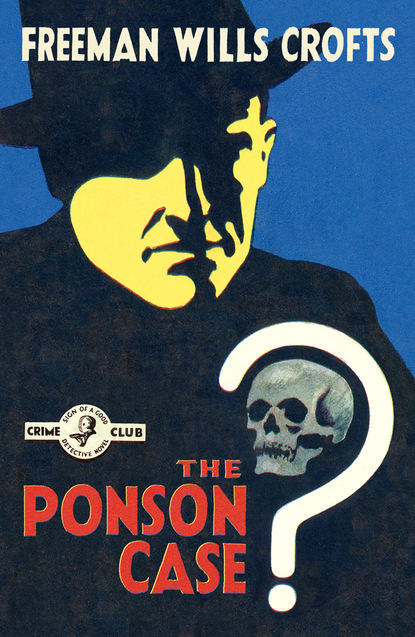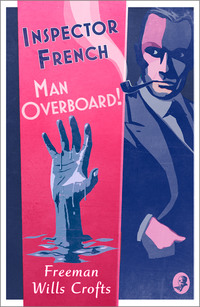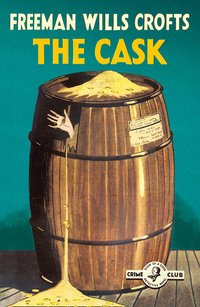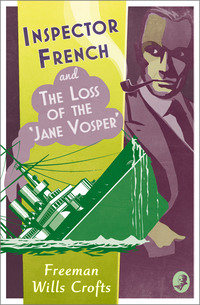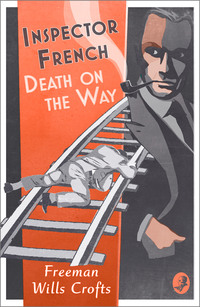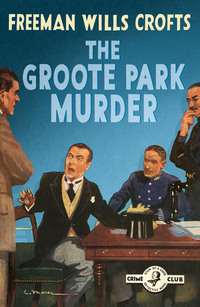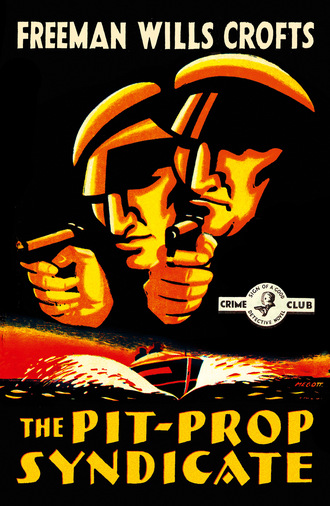
Полная версия
The Pit-Prop Syndicate
‘But it works in,’ Hilliard commented. ‘If the driver saw what you were looking at and your expression, he would naturally guess what you had noticed, and he would warn his boss that you had tumbled to it. The manager would look surprised and annoyed for a moment, then he would see he must divert your suspicion, and talk to you as if nothing had happened.’
‘Quite. That’s just what I thought. But again, I may have been mistaken.’
They continued discussing the matter for some time longer, and then the conversation turned into other channels. Finally the clocks chiming midnight aroused Merriman, and he got up and said he must be going.
Three days later he had a note from Hilliard.
‘Come in tonight about ten if you are doing nothing,’ it read. ‘I have a scheme on, and I hope you’ll join in with me. Tell you when I see you.’
It happened that Merriman was not engaged that evening, and shortly after ten the two men were occupying the same arm-chairs at the same open window, their glasses within easy reach and their cigars well under way.
‘And what is your great idea?’ Merriman asked when they had conversed for a few moments. ‘If it’s as good as your cigars, I’m on.’
Hilliard moved nervously, as if he found a difficulty in replying. Merriman could see that he was excited, and his own interest quickened.
‘It’s about that tale of yours,’ Hilliard said at length. ‘I’ve been thinking it over.’
He paused, as if in doubt. Merriman felt like Alice when she had heard the mock-turtle’s story, but he waited in silence, and presently Hilliard went on.
‘You told it with a certain amount of hesitation,’ he said. ‘You suggested you might be mistaken in thinking there was anything in it. Now I’m going to make a suggestion with even more hesitation, for it’s ten times wilder than yours, and there is simply nothing to back it up. But here goes all the same.’
His indecision had passed now, and he went on fluently and with a certain excitement.
‘Here you have a trade with something fishy about it. Perhaps you think that’s putting it too strongly; if so, let us say there is something peculiar about it; something, at all events, to call one’s attention to it, as being in some way out of the common. And when we do think about it, what’s the first thing we discover?’
Hilliard looked inquiringly at his friend. The latter sat listening carefully, but did not speak, and Hilliard answered his own question.
‘Why, that it’s an export trade from France to England—an export trade only, mind you. As far as you learnt, these people’s boat runs the pit-props to England, but carries nothing back. Isn’t that so?’
‘They didn’t mention return cargoes,’ Merriman answered, ‘but that doesn’t mean there aren’t any. I did not go into the thing exhaustively.’
‘But what could there be? What possible thing could be shipped in bulk from this country to the middle of a wood near Bordeaux? Something, mind you, that you, there at the very place, didn’t see. Can you think of anything?’
‘Not at the moment. But I don’t see what that has to do with it.’
‘Quite possibly nothing, and yet it’s an interesting point.’
‘Don’t see it.’
‘Well, look here. I’ve been making inquiries, and I find most of our pit-props come from Norway and the Baltic. But the ships that bring them don’t go back empty. They carry coal. Now do you see?’
It was becoming evident that Hilliard was talking of something quite definite, and Merriman’s interest increased still further.
‘I dare say I’m a frightful ass,’ he said, ‘but I’m blessed if I know what you’re driving at.’
‘Costs,’ Hilliard returned. ‘Look at it from the point of view of costs. Timber in Norway is as plentiful and as cheap to cut as in the Landes, indeed, possibly cheaper, for there is water there available for power. But your freight will be much less if you can get a return cargo. Therefore a priori, it should be cheaper to bring props from Norway than from France. Do you follow me so far?’
Merriman nodded.
‘If it costs the same amount to cut the props at each place,’ Hilliard resumed, ‘and the Norwegian freight is lower, the Norwegian props must be cheaper in England. How then do your friends make it pay?’
‘Methods more up to date perhaps. Things looked efficient, and that manager seemed pretty wideawake.’
Hilliard shook his head.
‘Perhaps, but I doubt it. I don’t think you have much to teach the Norwegians about the export of timber. Mind you, it may be all right, but it seems to me a question if the Bordeaux people have a paying trade.’
Merriman was puzzled.
‘But it must pay or they wouldn’t go on with it. Mr Coburn said it was paying well enough.’
Hilliard bent forward eagerly.
‘Of course he would say so,’ he cried. ‘Don’t you see that his saying so is in itself suspicious? Why should he want to tell you that if there was nothing to make you doubt it?’
‘There is nothing to make me doubt it. See here, Hilliard, I don’t for the life of me know what you’re getting at. For the Lord’s sake, explain yourself.’
‘Ah,’ Hilliard returned with a smile, ‘you see you weren’t brought up in the Customs. Do you know, Merriman, that the thing of all others we’re keenest on is an import trade that doesn’t pay?’ He paused a moment then added slowly: ‘Because if a trade which doesn’t pay is continued, there must be something else to make it pay. Just think, Merriman. What would make a trade from France to this country pay?’
Merriman gasped.
‘By Jove! Hilliard. You mean smuggling?’
Hilliard laughed delightedly.
‘Of course I mean smuggling, what else?’
He waited for the idea to sink in to his companion’s brain, then he went on:
‘And now another thing. Bordeaux, as no one knows better than yourself, is just the centre of the brandy district. You see what I’m getting at? My department would naturally be interested in a mysterious trade from the Bordeaux district. You accidentally find one. See? Now what do you think of it?’
‘I don’t think much of it,’ Merriman answered sharply, while a wave of unreasoning anger passed over him. The suggestion annoyed him unaccountably. The vision of Madeleine Coburn’s clear, honest eyes, returned forcibly to his recollection. ‘I’m afraid you’re out of it this time. If you had seen Miss Coburn you would have known she is not the sort of girl to lend herself to anything of that kind.’
Hilliard eyed his friend narrowly and with some surprise, but he only said:
‘You think not? Well, perhaps you are right. You’ve seen her and I haven’t. But those two points are at least interesting—the changing of the numbers and the absence of a return trade.’
‘I don’t believe there’s anything in it.’
‘Probably you’re right, but the idea interests me. I was going to make a proposal, but I expect now you won’t agree to it.’
Merriman’s momentary annoyance was subsiding.
‘Let’s hear it anyway, old man,’ he said in conciliatory tones.
‘You get your holidays shortly, don’t you?’
‘Monday week. My partner is away now, but he’ll be back on Wednesday. I go next.’
‘I thought so. I’m going on mine next week—taking the motor launch, you know. I had made plans for the Riviera—to go by the Seine, and from there by canal to the Rhone and out at Marseilles. Higginson was coming with me, but as you know he’s crocked up and won’t be out of bed for a month. My proposal is that you come in his place, and that instead of crossing France in the orthodox way by the Seine, we try to work through from Bordeaux by the Garonne. I don’t know if we can do it, but it would be rather fun trying. But any way the point would be that we should pay a call at your sawmill on the way, and see if we can learn anything more about the lorry numbers. What do you say?’
‘Sounds jolly fascinating.’ Merriman had quite recovered his good humour. ‘But I’m not a yachtsman. I know nothing about the business.’
‘Pooh! What do you want to know? We’re not sailing, and motoring through these rivers and canals is great sport. And then we can go on to Monte and any of those places you like. I’ve done it before and had no end of a good time. What do you say? Are you on?’
‘It’s jolly decent of you, I’m sure, Hilliard. If you think you can put up with a hopeless landlubber, I’m certainly on.’
Merriman was surprised to find how much he was thrilled by the proposal. He enjoyed boating, though only very mildly, and it was certainly not the prospect of endless journeyings along the canals and rivers of France that attracted him. Still less was it the sea, of which he hated the motion. Nor was it the question of the lorry lumbers. He was puzzled and interested in the affair, and he would like to know the solution, but his curiosity was not desperately keen, and he did not feel like taking a great deal of trouble to satisfy it. At all events he was not going to do any spying, if that was what Hilliard wanted, for he did not for a moment accept that smuggling theory. But when they were in the neighbourhood he supposed it would be permissible to call and see the Coburns. Miss Coburn had seemed lonely. It would be decent to try to cheer her up. They might invite her on board, and have tea and perhaps a run up the river. He seemed to visualise the launch moving easily between the tree-clad banks, Hilliard attending to his engine and steering, he and the brown-eyed girl in the taffrail, or the cockpit, or the well, or whatever you sat in on a motor boat. He pictured a gloriously sunny afternoon, warm and delightful, with just enough air made by the movement to prevent it’s being too hot. It would …
Hilliard’s voice broke in on his thoughts, and he realised his friend had been speaking for some time.
‘She’s over engined, if anything,’ he was saying, ‘but that’s all to the good for emergencies. I got fifteen knots out of her once, but she averages about twelve. And good in a sea-way, too. For her size, as dry a boat as ever I was in.’
‘What size is she?’ asked Merriman.
‘Thirty feet, eight feet beam, draws two feet ten. She’ll go down any of the French canals. Two four-cylinder engines, either of which will run her. Engines and wheel amidships, cabin aft, decked over. Oh, she’s a beauty. You’ll like her, I can tell you.’
‘But do you mean to tell me you would cross the Bay of Biscay in a boat that size?’
‘The Bay’s maligned. I’ve been across it six times and it was only rough once. Of course, I’d keep near the coast and run for shelter if it came on to blow. You need not worry. She’s as safe as a house.’
‘I’m not worrying about her going to the bottom,’ Merriman answered. ‘It’s much worse than that. The fact is,’ he went on in a burst of confidence, ‘I can’t stand the motion. I’m ill all the time. Couldn’t I join you later?’
Hilliard nodded.
‘I had that in my mind, but I didn’t like to suggest it. As a matter of fact it would suit me better. You see, I go on my holidays a week earlier than you. I don’t want to hang about all that time waiting for you. I’ll get a man and take the boat over to Bordeaux, send the man home, and you can come overland and join me there. How would that suit you?’
‘A1, Hilliard. Nothing could be better.’
They continued discussing details for the best part of an hour, and when Merriman left for home it had been arranged that he should follow Hilliard by the night train from Charing Cross on the following Monday week.
CHAPTER III
THE START OF THE CRUISE
DUSK was already falling when the 9.00 p.m. Continental boat-train pulled out of Charing Cross, with Seymour Merriman in the corner of a first-class compartment. It had been a glorious day of clear atmosphere and brilliant sunshine, and there was every prospect of a spell of good weather. Now, as the train rumbled over the bridge at the end of the station, sky and river presented a gorgeous colour scheme of crimson and pink and gold, shading off through violet and gray to nearly black. Through the latticing of the girders the great buildings on the northern bank showed up for a moment against the light beyond, dark and sombre masses with nicked and serrated tops, then, the river crossed, nearer buildings intervened to cut off the view, and the train plunged into the maze and wilderness of South London.
The little pleasurable excitement which Merriman had experienced when first the trip had been suggested had not waned as the novelty of the idea passed. Not since he was a boy at school had he looked forward so keenly to holidays. The launch, for one thing, would be a new experience. He had never been on any kind of cruise. The nearest approach had been a couple of days’ yachting on the Norfolk Broads, but he had found that monotonous and boring, and had been glad when it was over. But this, he expected, would be different. He delighted in poking about abroad, not in the great cosmopolitan hotels, which after all are very much the same all the world over, but where he came in contact with actual foreign life. And how better could a country be seen than by slowly motoring through its waterways? Merriman was well pleased with the prospect.
And then there would be Hilliard. Merriman had always enjoyed his company, and he felt he would be an ideal companion on the tour. It was true Hilliard had got a bee in his bonnet about this lorry affair. Merriman was mildly interested in the thing, but he would never have dreamt of going back to the sawmill to investigate. But Hilliard seemed quite excited about it. His attitude, no doubt, might be partly explained by his love of puzzles and mysteries. Perhaps also he half believed in his absurd suggestion about the smuggling, or at least felt that if it were true there was the chance of his making some coup which would also make his name. How a man’s occupation colours his mind! thought Merriman. Here was Hilliard, and because he was in the Customs his ideas ran to Customs operations, and when he came across anything he did not understand he at once suggested smuggling. If he had been a soldier he would have guessed gunrunning, and if a politician, a means of bringing anarchist literature into the country. Well, he had not seen Madeleine Coburn! He would soon drop so absurd a notion when he had met her. The idea of her being party to such a thing was too ridiculous even to be annoying.
However, Hilliard insisted on going to the mill, and he, Merriman, could then pay that call on the Coburns. It would not be polite to be in the neighbourhood and not do so. And it would be impossible to call without asking Miss Coburn to come on the river. As the train rumbled on through the rapidly darkening country Merriman began once again to picture the details of that excursion. No doubt they could have tea on board … He mustn’t forget to buy some decent cakes in Bordeaux … Perhaps she would help him to get it ready while Hilliard steered and pottered over his old engines … He could just imagine her bending over a tea tray, her graceful figure, the little brown tendrils of her hair at the edge of her tam-o’-shanter, her brown eyes perhaps flashing up to meet his own …
Dover came unexpectedly soon and Merriman had to postpone the further consideration of his plans until he had gone on board the boat and settled down in a corner of the smoke room. There, however, he fell asleep, not awaking until aroused by the bustle of the arrival in Calais.
He reached Paris just before six and drove to the Gare Quai d’Orsay, where he had time for a bath and breakfast before catching the 7.50 a.m. express for Bordeaux. Again it was a perfect day, and as the hours passed and they ran steadily southward through the pleasing but monotonous central plain of France, the heat grew more and more oppressive. Poictiers was hot, Angoulême an oven, and Merriman was not sorry when at a quarter to five they came in sight of the Garonne at the outskirts of Bordeaux and a few moments later pulled up in the Bastide Station.
Hilliard was waiting at the platform barrier.
‘Hallo, old man,’ he cried. ‘Jolly to see you. Give me one of your handbags. I’ve got a taxi outside.’
Merriman handed over the smallest of the two small suit-cases he carried, having, in deference to Hilliard’s warnings, left behind most of the things he wanted to bring. They found the taxi and drove out at once across the great stone bridge leading from the Bastide Station and suburb on the east bank to the main city on the west. In front of them lay the huge concave sweep of quays fronting the Garonne, here a river of over a quarter of a mile in width, with behind the massed buildings of the town, out of which here and there rose church spires and, farther down-stream, the three imposing columns of the Place des Quinconces.
‘Some river, this,’ Merriman said, looking up and down the great sweep of water.
‘Rather. I have the Swallow ’longside a private wharf farther up-stream. Rather tumbled down old shanty, but it’s easier than mooring in the stream and rowing out. We’ll go and leave your things aboard, and then we can come up town again and get some dinner.’
‘Right-o,’ Merriman agreed.
Having crossed the bridge they turned to the left, up-stream, and ran along the quays towards the south. After passing the railway bridge the taxi swung down towards the water’s edge, stopping at a somewhat decrepit enclosure over the gate of which was the legend ‘Andre Leblanc, Location de Canots’. Hilliard jumped out, paid the taxi man, and, followed by Merriman, entered the enclosure.
It was a small place, with a wooden quay along the river frontage and a shed at the opposite side. Between the two lay a number of boats. Trade appeared to be bad, for there was no life about the place and everything was dirty and decaying.
‘There she is,’ Hilliard cried, with a ring of pride in his voice. ‘Isn’t she a beauty?’
The Swallow was tied up alongside the wharf, her bow up-stream, and lay tugging at her mooring ropes in the swift run of the ebb tide. Merriman’s first glance at her was one of disappointment. He had pictured a graceful craft of well-polished wood, with white deck planks, shining brass work and cushioned seats. Instead he saw a square-built, clumsy looking boat, painted, where the paint was not worn off, a sickly greenish white, and giving a general impression of dirt and want of attention. She was flush-decked, and sat high in the water, with a freeboard of nearly five feet. A little forward of amidships was a small deck cabin containing a brass wheel and binnacle. Aft of the cabin, in the middle of the open space of the deck, was a skylight, the top of which formed two short seats placed back to back. Forward rose a stumpy mast carrying a lantern cage near the top, and still farther forward, almost in the bows, lay an unexpectedly massive anchor, housed in grids, with behind it a small hand winch for pulling in the chain.
‘We had a bit of a blow coming round the Coubre into the river,’ Hilliard went on enthusiastically, ‘and I tell you she didn’t ship a pint. The cabin bone dry, and green water coming over her all the time.’
Merriman could believe it. Though his temporary home was not beautiful, he could see that she was strong; in fact, she was massive. But he thanked his stars he had not assisted in the test. He shuddered at the very idea, thinking gratefully that to reach Bordeaux the Paris-Orleans Railway was good enough for him.
But, realising it was expected of him, he began praising the boat, until the unsuspecting Hilliard believed him as enthusiastic as himself.
‘Yes, she’s all of that,’ he agreed. ‘Come aboard and see the cabin.’
They descended a flight of steps let into the front of the wharf, wet, slippery, ooze-covered steps left bare by the receding tide, and, stepping over the side entered the tiny deck-house.
‘This is chart-house, shelter, and companion-way all in one,’ Hilliard explained. ‘All the engine controls come up here, and I can reach them with my left hand while steering with my right.’ He demonstrated as he spoke, and Merriman could not but agree that the arrangements were wonderfully compact and efficient.
‘Come below now,’ went on the proud owner, disappearing down a steep flight of steps against one wall of the house.
The hull was divided into three compartments; amidships the engine room with its twin engines, forward a store containing among other things a collapsible boat, and aft a cabin with lockers on each side, a folding table between them, and a marble-topped cupboard on which was a Primus stove.
The woodwork was painted the same greenish white as the outside, but it was soiled and dingy, and the whole place looked dirty and untidy. There was a smell of various oils, paraffin predominating.
‘You take the port locker,’ Hilliard explained. ‘You see, the top of it lifts and you can stow your things in it. When there are only two of us we sleep on the lockers. You’ll find a sheet and blankets inside. There’s a board underneath that turns up to keep you in if she’s rolling; not that we shall want it until we get to the Mediterranean. I’m afraid,’ he went on, answering Merriman’s unspoken thought, ‘the place is not very tidy. I hadn’t time to do much squaring—I’ll tell you about that later. I suppose’—reluctantly—‘we had better turn to and clean up a bit before we go to bed. But’—brightening up again—‘not now. Let’s go up town and get some dinner as soon as you are ready.’
He fussed about, explaining with the loving and painstaking minuteness of the designer as well as the owner, the various contraptions the boat contained, and when he had finished, Merriman felt that, could he but remember his instructions, there were few situations with which he could not cope or by which he could be taken unawares.
A few minutes later the two friends climbed once more up the slippery steps, and, strolling slowly up the town, entered one of the large restaurants in the Place de la Comedie.
Since Merriman’s arrival Hilliard had talked vivaciously, and his thin, hawk-like face had seemed even more eager than the wine merchant had ever before seen it. At first the latter had put it down to the natural interest of his own arrival, the showing of the boat to a newcomer, and the start of the cruise generally, but as dinner progressed he began to feel there must be some more tangible cause for the excitement his friend was so obviously feeling. It was not Merriman’s habit to beat about the bush.
‘What is it?’ he asked during a pause in the conversation.
‘What is what?’ returned Hilliard, looking uncomprehendingly at his friend.
‘Wrong with you. Here you are, jumping about as if you were on pins and needles and gabbling at the rate of a thousand words a minute. What’s all the excitement about?’
‘I’m not excited,’ Hilliard returned seriously, ‘but I admit being a little interested by what has happened since we parted that night in London. I haven’t told you yet. I was waiting until we had finished dinner and could settle down. Let’s go and sit in the Jardin and you shall hear.’
Leaving the restaurant, they strolled to the Place des Quinconces, crossed it, and entered the Jardin Public. The band was not playing and, though there were a number of people about, the place was by no means crowded, and they were able to find under a large tree set back a little from one of the walks, two vacant chairs. Here they sat down, enjoying the soft evening air, warm, but no longer too warm, and watching the promenading Bordelais.
‘Yes,’ Hilliard resumed as he lit a cigar, ‘I have had quite an interesting time. You shall hear. I got hold of Maxwell of the telephones, who is a yachtsman, and who was going to Spain on holidays. Well, the boat was laid up at Southampton, and we got down about midday on Monday week. We spent that day overhauling her and getting in stores, and on Tuesday we ran down Channel, putting into Dartmouth for the night and to fill up with petrol. Next day was our big day—across to Brest, something like 170 miles, mostly open sea, and with Ushant at the end of it—a beastly place, generally foggy and always with bad currents. We intended to wait in the Dart for good weather, and we wired the Meteorological Office for forecasts. It happened that on Tuesday night there was a first-rate forecast, so on Wednesday we decided to risk it. We slipped out past the old castle at Dartmouth at 5 a.m., had a topping run, and were in Brest at seven that evening. There we filled up again, and next day, Thursday, we made St Nazaire, at the mouth of the Loire. We had intended to make a long day of it on Friday and come right here, but as I told you it came on to blow a bit off the Coubre, and we could only make the mouth of the river. We put in to a little place called Le Verdon, just inside the Pointe de Grave—that’s the end of that fork of land on the southern side of the Gironde Estuary. On Saturday we got here about midday, hunted round, found that old wharf and moored. Maxwell went on the same evening to Spain.’




